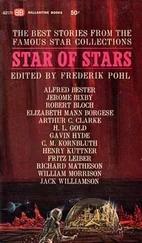There he was. On the couch, sound asleep, still wearing his water department uniform. A streak of mud shot across his forehead like a comet.
Mo cupped a hand over her sprinting heart. Home . He’d always come home. Always be there. He’d promised her, a hundred times. A thousand times.
Gently, she tugged off his work boots. How heavy they were, soles and laces caked with yellow clay. Mr. Wren stirred, then began to snore with a little putt-putt noise, like a boat on a calm sea. Mo went back to bed, and this time she fell sound asleep.
Sundays were quiet on Fox Street. Mercedes had to spend most of the day at church with Da, who couldn’t wait to show her off. When Mr. Wren finally got up, he was very grumpy, but Mo talked him into cooking them what he called a restaurant breakfast-eggs, home fries, bacon, a stack of toast drenched in butter. When he owned his own place, breakfast would be on the menu all day long. Afterward he and Mo went out into the backyard to throw the ball around. But the yard was small, and the plum tree got in the way, and though she wanted to keep his spirits up, Mo found playing catch boring. She wasn’t sorry when he said he thought he’d join a pickup game over by the middle school, and that Mo and Dottie should meet him at the Tortilla Feliz, up on Paradise, later. They’d get a table out back and order their favorite, the Burro Burrito.
So Mo unkinked the green hose and gave the plum tree a hearty drink. A shiny-winged blackbird, high in its branches, eyed her with approval. Then Mo settled on the front steps while Dottie crouched in the dirt beneath the bushes and held a funeral for a housefly. Mo watched Mrs. Baggott push Baby Baggott in the stroller and wondered how it could be that Mrs. Baggott’s flip-flops only went flop , not flip . Mr. Duong mended a bicycle on his front lawn. The summer sun ricocheted off the roofs of the parked cars and winked in the diamond-paned windows of Da’s yellow house. Mrs. Steinbott was clipping the grass around her roses. Snipsnipsnip, rhythmic as a heart’s beat.
This was the spot where Mo’s mother would sit, waiting for Mo to come home from school. As soon as she turned the corner and passed the Kowalskis’ hedge, she’d spy her mother’s wild, rusty red hair and start to run. In those days, her backpack held maybe one piece of paper and her crayons. It was empty and light. A little kid’s burden.
The Kowalskis had moved away a long time ago. The people who lived there now worked the night shift somewhere and slept all day, and nobody ever saw them. Their front windows still said MERRY XMAS in spray-on snow.
“I now pronounce you dead,” said Dottie, smoothing the dirt and sprinkling it with dandelions. “Rest in peas, almonds.”
Mo flattened her hands on the warm wooden step. The sun was sliding down the sky. A ray slanted onto Mrs. Steinbott’s clippers and made them gleam. Clipclipclip. Everything’s going to be okay, Mo told herself. Things will all work out.
Still, she wished she didn’t feel so alone. What she needed was a sign. Something real, with a weight she could feel in her hand. Something to anchor her the way, when you did a headstand or a cartwheel, you found a spot on the wall to focus your eyes, so you could keep up, up and down, down.

THE VERY NEXT DAY, the Wrens received the Letter. Bernard, the mailman, a handsome older man with dreads, delivered it. It was the kind of official mail requiring a signature, and he let Mo sign, since Mr. Wren was at work.
No sooner had she read it than like a pebble from a slingshot, she was across the street and up on Da’s porch, where Mercedes sat fanning herself.
“Read this!” Mo commanded.
Mercedes laid down the paper fan, which advertised Mrs. Petrone’s funeral parlor. O GRAVE, WHERE IS THY VICTORY? it asked.
“Let me take a moment to introduce myself,” Mercedes read aloud. “My name is Robert J. Buckman, and it is my understanding that your property on Fox Street may be available for purchase…midst the current economic turmoil, when real estate is so difficult to sell…” Mercedes was a speed reader. Her eyes flew down the page faster than her mouth could keep up. “Prepared to make a generous offer…”
“I don’t get it.”
“…in a position to buy your property in as-is condition…” Mercedes narrowed her eyes. “…can close the sale quickly…am prepared to pay one hundred percent cash…”
“I don’t get it.”
“Unfortunately, I do.” Mercedes tossed the letter aside. “One time, a landlord sold our place right out from under us. Monette and I were out on the street”-she snapped her fingers-“just like that.”
The normally cool porch grew hotter by the second. Mo’s mouth was Sahara dry.
“I don’t get it,” she rasped, as if saying the same thing three times might break the evil spell.
“A neighborhood goes downhill, and some sleazoid sees his chance to make money.” Mercedes started fanning herself like someone single-handedly trying to extinguish a forest fire. “He buys up houses for next to nothing, throws a little paint on them, then resells them for a profit.”
“But…but why would he send it to my dad? Of all people?”
Mercedes stopped her fanning. She studied Mo. “You might want to ask him that question.”
Mo did not care for the tone of her best friend’s voice. She snatched the letter back and reread it. Phrases like “generous offer” and “one hundred percent cash” leaped out like neon signs.
“If my father saw this, that scum-bucket Buckman would be history!” She crumpled the letter in her fist.
Just then Da shuffled out onto the porch, leaning on her cane, a three-pronged contraption that looked designed to support a light or a fan, not a human being. Mercedes hustled to put a pillow behind her and drag over a stool for her feet. When Da plopped down with a small grunt, Mo worked hard not to picture what was inside those shoes.
“Mo Wren! There is no music in the nightingale. Why do you look so upset?”
“I’m not!” Mo shot Mercedes a look that said, No need to worry Da, right?
“We feared a lethal gas attack,” Mercedes replied, cool as can be. “But it was only dear sweet Mrs. Steinbott.”
Three heads swiveled to look across the street, where Mrs. Steinbott was spraying her roses from a yellow canister that was nearly as big as she was.
“Those poor bugs.” Da gave her head a small shake. “They don’t stand a chance.”
“Me either,” Mercedes said. “Every time I pass her house, I feel her watching me. It creeps me out. I feel like she’s counting the hairs on my head. I mean, if there were any hairs.”
“Don’t be silly.” But Da, who’d always taught them how rude it was to stare, in turn regarded Mrs. Steinbott for a long time.
“When Mr. Walcott and I first moved here,” she said at last, “Gertrude and I used to sweep our sidewalks every evening. Now, being the first people of color, we Walcotts weren’t particularly welcomed. That, my children, is what you call an understatement.”
Under normal circumstances, there was nothing Mo loved better than sitting on this porch listening to Da’s tales about the old days on Fox Street. Da was big on history. “If you don’t know where you’re going,” she liked to lecture, “you’d best know where you’re coming from.” Not that Mo planned on going anywhere. Da’s Fox Street tales were her tales, too. Sitting on this cool, creaky porch, she loved slipping back to the time when Fox Street was paved with bricks, and the neighborhood was so young, someone else lived in the Wren house. The thought of that made her brain cartwheel.
Читать дальше













